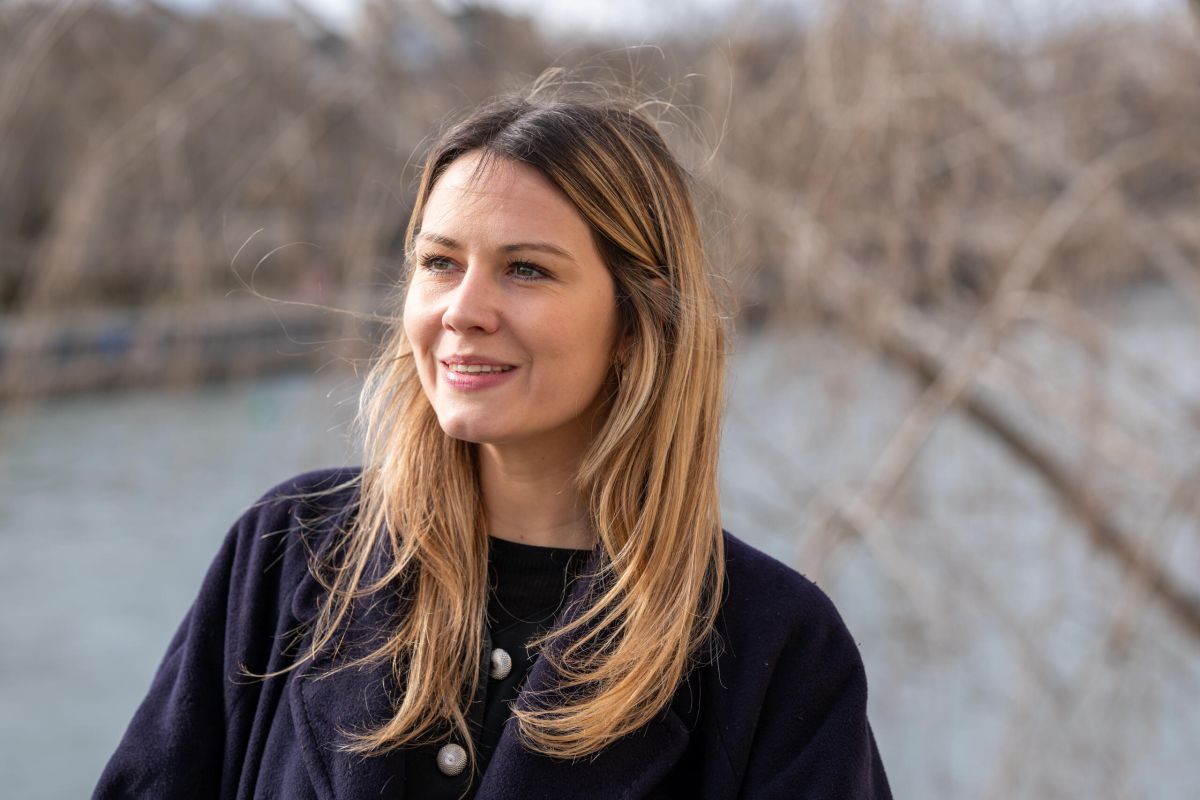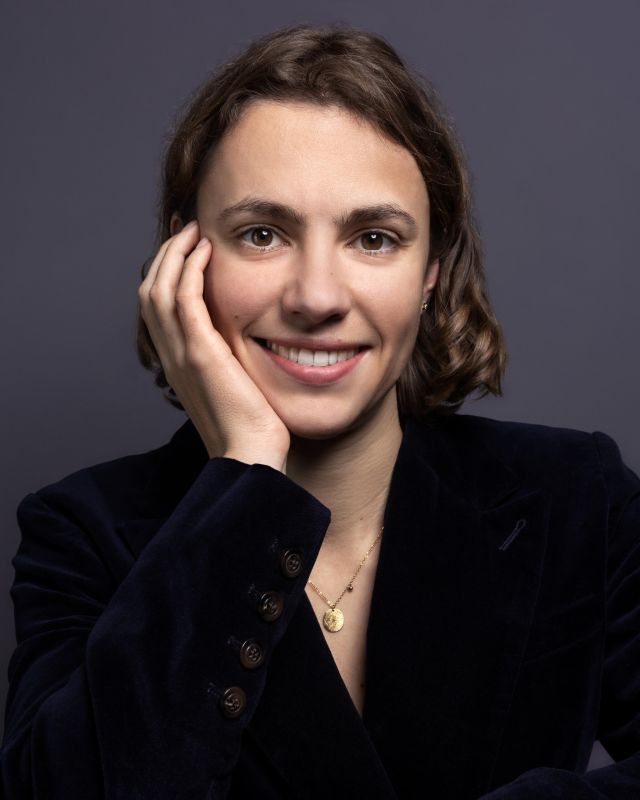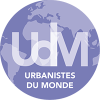Portrait

Lily Munson - GLM 2017 - Secretary General of Villes Vivantes
Published on | Alumni Portraits
Portrait created by Jonathan Motte on 27 February 2025
To begin with, could you give us a brief overview of your background and the reasons that led you to the GLM master's programme?
My background has been quite diverse initially. After two years in preparatory classes, I joined the École Normale Supérieure in Lyon, where I obtained a Bachelor's degree in History and a Master 1 in Contemporary History, under the supervision of Frédéric Abécassis. My dissertation allowed me to explore political and cultural issues under the Ben Ali regime while also delving into international questions. Afterwards, I had to prepare for the competitive exams for senior civil service positions, specifically the CAPES and the agrégation. At the age of 22 or 23, I was appointed as a History-Geography teacher in Mont-Blanc. I didn't see myself there, which prompted me to pursue a second master's degree, this time at Sciences Po, where I chose the GLM programme. I was immediately attracted to this programme due to its combined approach to international matters, public policy—which I had not yet examined from an academic perspective—and urbanism, a field that greatly interested me.
What have been the most valuable lessons from the Master's, and what collective project did you undertake?
I genuinely appreciated all the courses in the programme, but those taught by Tommaso Vitale particularly fascinated me, especially the public policy theory classes. This was a field I was unfamiliar with, and it proved to be crucial, especially when it came to designing policies in real-life contexts. These lessons enabled me to better understand the complex dynamics of governance. I was also greatly impacted by the classes delivered by Patrick Le Gallès, whose approach to urban planning illuminated the issues surrounding urban management for me. I have particularly strong memories of Stephen Kaplan's course; as an expert on the French Revolution, he provided us with a fascinating analysis of the history of bread and its political, geopolitical, geographical, and social implications in France.
Alongside the theoretical classes, I found the practical modules, such as the Saturday morning field trips, to be incredibly enriching. I recall that we engaged in fruitful discussions with a community of travellers based in St Denis. These encounters allowed us to understand local dynamics and avoid a top-down view of urban planning, taking into account the entirety of the urban ecosystem.
Regarding my collective project, it was carried out with Vinci and La Fabrique de la Cité, and revolved around data and energy. This was a stimulating and complex project, particularly due to the international team I worked with, which included a Russian and a South Korean member. This experience provided me with valuable insights into group dynamics and corporate work within an intercultural framework.
Can you reflect on your early professional experiences?
I began my professional journey with an end-of-studies internship at the office of Jean-Louis Missika, Deputy Mayor of Paris, Anne Hidalgo, who oversees urbanism, architecture, economic development, and the Grand Paris project. Working in a political office is a unique experience, as the issues are incredibly diverse and the stakeholders are of a very high level, but one does not always benefit from conventional supervision. This experience compelled me to be autonomous. It was an intellectual and political revelation. I was fortunate to contribute to a genuine revolution in urban planning and development with the implementation of unprecedented methods such as Réinventer Paris.
I then joined the Data City programme, led by NUMA, an incubator. This programme enabled me to work with major organisations such as RATP and Bouygues on harnessing their data to create prototypes. It was a highly formative experience, particularly within the realm of startups and innovation.
You then returned to Jean-Louis Missika's office before taking the campaign lead for Ariel Weil and continuing your journey within the City of Paris. What insights did you gain from these experiences?
My time with Jean-Louis allowed me to work on a wide range of very varied but also very complex issues. I was involved in economic development and urban planning projects in districts like the 15th and 16th, which served as excellent training in regulatory urbanism since local resistance is often encountered. In 2020, I took the campaign lead for the mayor of the 4th arrondissement, which was a completely new experience for me. Due to the trust he placed in me, I had the pleasure of coordinating hundreds of activists. I had to manage a significant budget and face the challenges imposed by the Covid health crisis, which complicated campaign management. This experience taught me how fundamental the operational aspect and fieldwork are in politics.
After our victorious campaign, I joined the office of the newly elected mayor of the Paris Centre sector, Ariel Weil, where I was responsible for social housing and real estate matters, specifically managing negotiations to develop social housing projects. Subsequently, I joined Emmanuel Grégoire, the First Deputy Mayor of Paris, to work on public space and land-related issues. I was particularly engaged in drafting the Manifesto for the Beauty of Paris, which established the guidelines for the design of public spaces in the city.
These promising beginnings have led you to Villes Vivantes, where you currently work as Secretary General. Can you introduce this ‘urbanism start-up’ and describe your activities?
Villes Vivantes is a company that operates projects for gentle densification through supported self-promotion. We assist individuals in transforming their homes, enabling them to renovate or add additional surfaces without having to turn to developers, meaning they do not have to sell their plots of land. The goal is to address housing needs while preserving the heritage and emotional value of properties, and above all, without urban sprawl! We work significantly with elderly individuals, for instance, whose homes no longer meet their needs and where the costs have become too burdensome. They often require support to understand the options available that allow them to remain in their homes for as long as possible without having to sell the house they have lived in for many years.
As Secretary General, I am responsible for administrative aspects, communications, public relations, and internal coordination of support functions related to the CEO and our director of financial affairs. We have also launched the VV School, an institution dedicated to organic urbanism, which offers free training programmes for students. On a daily basis, I handle the writing of content for our training sessions, coordinate our research projects, and manage relationships with our various partners, including Sciences Po, by the way!
Do you have any advice for students?
I would advise them not to hesitate to get involved in operational roles and not to feel disheartened about starting as “a helping hand” at the beginning of their career. At Sciences Po, one can develop a very theoretical view of what they might do in the professional world. But the reality is that it is essential to confront the operational side to truly understand the stakes involved. When starting out in one's career, there may be a tendency to aim for “strategy” roles, but it is within the concrete tasks and project management on the ground that real learning occurs. It is this daily work that grants you true legitimacy and mastery of the issues at hand.
Marion Waller - GLM 2014 - General Director of the Pavillon de l'Arsenal
Published on 20 October 2023
Hello Marion, could you first tell us about your university background and the motivations that led you to the GLM Master's programme? I initially pursued a…
 English
English  Français
Français 



